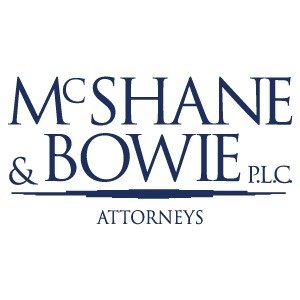Best Natural Resources Lawyers in Grand Rapids
Share your needs with us, get contacted by law firms.
Free. Takes 2 min.
List of the best lawyers in Grand Rapids, United States
About Natural Resources Law in Grand Rapids, United States
Natural resources law in Grand Rapids, United States, encompasses the regulation and use of the natural environment and resources in the region. This includes water rights, land use, minerals, oil and gas, forestry, and biodiversity conservation. Given Michigan's diverse natural landscapes, ranging from forests and lakes to mineral deposits, the legal framework aims to balance resource utilization with environmental conservation and preservation.
Why You May Need a Lawyer
There are several scenarios in which individuals or businesses may require legal assistance concerning natural resources in Grand Rapids. These may include:
- Disputes over land use or resource extraction rights
- Environmental compliance and regulatory issues
- Permitting and licensing for natural resource development projects
- Defense against environmental liability or enforcement actions
- Negotiations for leasing mineral rights or other resource-related contracts
- Litigation involving adverse environmental impacts or pollution
Local Laws Overview
The legal landscape for natural resources in Grand Rapids is influenced by both state and federal legislation. Key aspects include:
- Water resources: Managed under the Public Trust Doctrine and Michigan's water law policies, focusing on sustainable use and water quality protection.
- Land Use: Governed by zoning laws and the Michigan Zoning Enabling Act to ensure responsible development.
- Mineral Rights: Handled under Michigan's Mineral Rights Act, facilitating responsible extraction while protecting landowner rights.
- Environmental Protection: Enforced by the Michigan Department of Environment, Great Lakes, and Energy (EGLE), ensuring compliance with the Clean Water Act and Clean Air Act.
Frequently Asked Questions
What is the role of a natural resources attorney?
A natural resources attorney helps clients navigate complex environmental laws, secure permits, and resolve disputes involving natural resources utilization.
How do I obtain a permit for water use in Grand Rapids?
Permits can be obtained through the Michigan Department of Environment, Great Lakes, and Energy (EGLE) by submitting a permit application that demonstrates sustainable use and minimal environmental impact.
What are mineral rights, and do I need legal assistance to lease them?
Mineral rights allow the holder to extract minerals from the land. Legal assistance can ensure fair compensation and compliance with regulatory requirements.
How can I stay compliant with environmental regulations?
Regular compliance audits, staying informed about regulation changes, and consulting with legal experts can help maintain environmental compliance.
Are there any incentives for sustainable resource use in Grand Rapids?
Yes, state and federal programs offer grants and tax incentives for projects that promote sustainability and environmental protection.
What should I do if I'm facing an environmental lawsuit?
Seek immediate legal counsel to understand your rights, assess the case specifics, and develop a defense strategy.
How does zoning law affect natural resource development?
Zoning laws regulate land use, impacting where and how natural resource activities can be conducted. Compliance is necessary to avoid legal issues.
Who should I contact to dispute a land use decision in Grand Rapids?
Disputes can often be addressed through the local zoning board or by seeking legal assistance for formal appeals.
What are the consequences of not adhering to natural resource laws?
Violations can lead to fines, legal action, permit revocations, and significant operational disruptions.
Where can I find information about natural resource legislation updates?
The Michigan Department of Environment, Great Lakes, and Energy (EGLE) website and legal publications are good sources for updates.
Additional Resources
For more information and assistance, consider reaching out to the following organizations:
- Michigan Department of Environment, Great Lakes, and Energy (EGLE): For regulatory and permitting guidance.
- Michigan Environmental Council: An organization focused on environmental policy and advocacy.
- Local Bar Associations: For referrals to lawyers specializing in natural resources law.
Next Steps
If you need legal assistance in the field of natural resources, it's advisable to:
- Gather relevant documents and information about your case or legal issue.
- Research and contact a qualified natural resources attorney in Grand Rapids.
- Schedule a consultation to discuss your situation and understand your legal options.
- Evaluate potential legal strategies and costs involved to make informed decisions.
Lawzana helps you find the best lawyers and law firms in Grand Rapids through a curated and pre-screened list of qualified legal professionals. Our platform offers rankings and detailed profiles of attorneys and law firms, allowing you to compare based on practice areas, including Natural Resources, experience, and client feedback.
Each profile includes a description of the firm's areas of practice, client reviews, team members and partners, year of establishment, spoken languages, office locations, contact information, social media presence, and any published articles or resources. Most firms on our platform speak English and are experienced in both local and international legal matters.
Get a quote from top-rated law firms in Grand Rapids, United States — quickly, securely, and without unnecessary hassle.
Disclaimer:
The information provided on this page is for general informational purposes only and does not constitute legal advice. While we strive to ensure the accuracy and relevance of the content, legal information may change over time, and interpretations of the law can vary. You should always consult with a qualified legal professional for advice specific to your situation.
We disclaim all liability for actions taken or not taken based on the content of this page. If you believe any information is incorrect or outdated, please contact us, and we will review and update it where appropriate.









